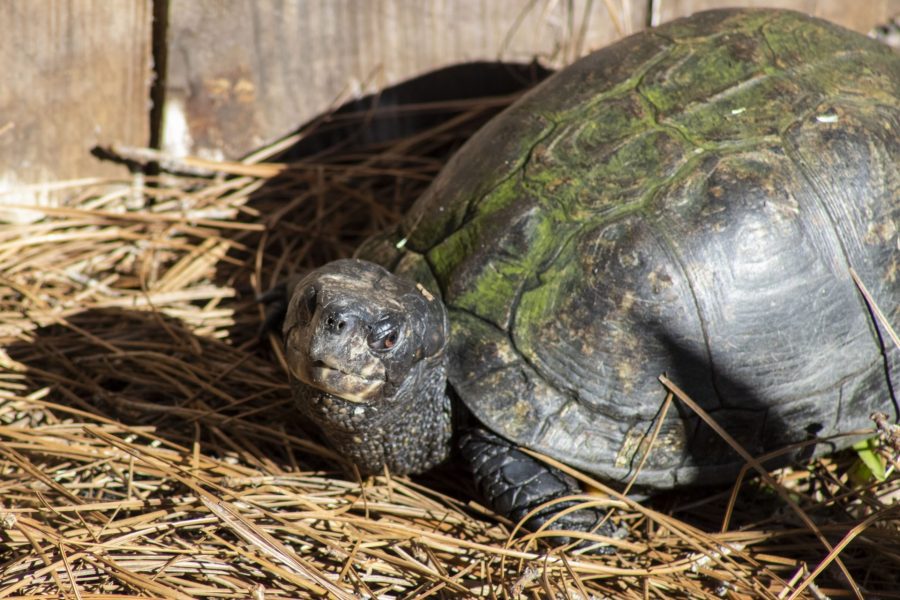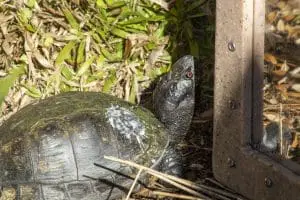

Guests often miss Killer, the Gulf Coast box turtle, in his habitat in our Wild Florida loop.
Walking through Wild Florida, even our eagle-eyed guests may miss one of the animal residents who call this loop home: Killer, the Gulf Coast box turtle. Killer gets his name due to the territorial – but harmless – behavior keepers see from him when entering his habitat.
Killer lives in a small habitat across the boardwalk from our white-tailed deer, Persimmon, our flock of Osceola turkeys, our flock of sandhill cranes and Josie the Baird’s tapir.
Most of the time, Killer will submerge underwater throughout his habitat during the summer or tuck himself underneath the large log in his small bog area, said Mack Ralbovsky, area supervisor of herps and aquatics. During colder months, Killer will spend more time on land basking right behind the bog area, but he is still fond of the water.
 Killer’s age is unknown. He came fully grown to the Zoo in 2009, but the researcher who donated him found him north of Tindell Air Force Base in Panama City, Florida, in 1984. Scientists believe box turtles can live to be over 100 years old.
Killer’s age is unknown. He came fully grown to the Zoo in 2009, but the researcher who donated him found him north of Tindell Air Force Base in Panama City, Florida, in 1984. Scientists believe box turtles can live to be over 100 years old.
Killer is very curious of people and investigates his keepers whenever they enter his space. He loves to explore, and keepers give him supervised exploration sessions in the area behind his viewing habitat. He usually just follows them.
Killer is offered a range of food items a few times a week: vegetables, greens and occasionally fruit. Earthworms, a staple of a box turtle diet, are his absolute favorite, Mack said. Killer will spend as much time as needed tracking and catching earthworms when they’re put into his habitat.
One of Killer’s favorite enrichments is to have earthworms placed in the pool or use forage feeders with earth worms inside. Killer is also target trained and will voluntarily walk onto a scale for monthly weights.
While we have a few subspecies of Eastern box turtles at the Zoo, Killer is the only Gulf Coast box turtle. Gulf Coast box turtles are the largest among the subspecies.
Brevard Zoo is an independent, not-for-profit organization that receives no recurring government funding for our operating costs. Your generous support enables us to continue to serve our community and continue our vital animal wellness, education and conservation programs.